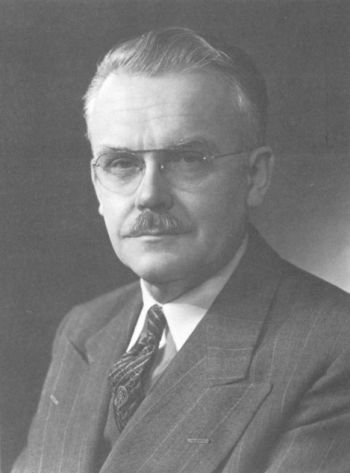Astrophysicist Beals Honoured with Hall of Fame & Award

Dr. Carlyle Smith Beals (1899-1979) has been posthumously inducted into the Nova Scotia Science Hall of Fame and received the Discovery Award for science and innovation. This award celebrates outstanding innovators whose achievements in science and technology put Nova Scotia at the forefront of global innovation.
Beals, who graduated with a physics degree from Acadia in 1919, went on to become an internationally renowned astrophysicist. A Fellow of the Royal Society of London and a president of the American Astronomical Society (the only Canadian ever to hold that position), he carried out his research in Victoria and later in Ottawa. An able administrator, during his 18 years as Dominion Astronomer, Beals encouraged and led research in astronomy and geophysics in Canada. The International Astronomical Union honoured his memory by naming both an asteroid and a lunar crater, “Beals”.
Dr. Beals maintained strong ties to Acadia. His parents and siblings attended Acadia, and both he and his father were on the university’s Board of Governors. Beals’ work was further recognized when in 1948 he received an honourary degree from Acadia. Later, a seminar room in the physics department was named in his memory, and a display case inside showcases his work. Today, the Carlyle and Miriam Beals Memorial Scholarship is awarded to a continuing student in fine arts and a student in the general field of science.
The awards ceremony took place in Halifax on November 20. President Jeff Hennessy was there to receive the award on behalf of Dr. Beals and Acadia.
“Dr. Beals was committed to his local community; he worked for the betterment of his country; and his success and his reach became global. I can’t imagine a better epitaph for a giant in the history of astrophysics,” Hennessy says.
"This recognition for Dr. Carlyle Beals tonight, the Discovery Award and the induction into the Hall of Fame are so incredibly fitting. We are proud of Dr. Beals and his whole family’s connections to our campus and our community.”
To learn more about Dr. Beals’ work, watch as Dr. Anna Kiefte, chair of the Department of Physics, and President Hennessy further explain his legacy and its importance to Acadia:
